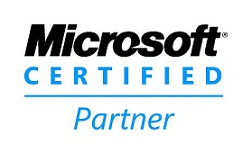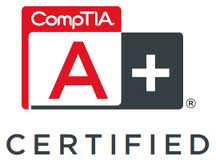
Thursday May 29th 2025
PC Repair Las Vegas
Contact LVIT @ 702-948-8550
We are a full computer repair service company offering expert in home or office on site computer repairs.
Fees
On-site Virus Removal per PC
$95.00 Flat Rate
Reload OS when you don’t have Recovery CD’s per PC
$150.00
Diagnoses
$50.00 Flat Rate
Networking
$95.00 – $150.00 per hour
We will respond quickly and have you back in working order either the same day or the next day in most cases… We take pride on having the knowledge and ability to solve your computer problems quickly and efficiently.
Common computer problems
Slow Performance
Operating System Failure
Internet Connections
Illegal Operations Errors
Hardware Failure
Hardware Conflicts
Freeze Ups
System Won’t Shut Down
Memory Problems
Printing Problems
Virus Problems
Backup Problems
Network Problems
User Preventive Maintenance
Run the Scandisk and Disk Defragmenter utilities that are part of the Windows operating system.
Make sure you always shut down your computer properly.
Uninstall any un-needed programs from your hard drive.
Description of Malware
- Adware
Adware (or spyware) is a small program that is designed to show advertisements (in various form and degrees of intrusiveness) on your computer. It often reports personal information back to its owners. As a result your sense of privacy can be violated.
- Backdoor
A backdoor is a small malicious program that is used to gain access to a computer by bypassing the computer access security mechanisms. It gives the attacker almost unlimited rights. While it can be used to spy on a user, it is mainly used to install other malware on the system.
- Heuristic
A technique designed to detect malware by empirical means but without having the specific data.
- Malware
A generic name for all types of malicious programs: adware, backdoors, rogues, Trojans, viruses and worms.
- Rogue
A rogue program is a malicious program that is disguised, for instance, as trustworthy anti-spyware programs or registry cleaners. But these programs are only put on the market to scare you into buying these programs because they make exaggerated claims about the safety of your computer or, worse still, give erroneous scan results or put their own malware in your system.
- Trojan
A Trojan (or Trojan horse) is a small malicious program that pretends to have a particular function, but that only shows its real purpose after execution and that purpose is often destructive. Trojans cannot multiply themselves, which differentiates them from viruses and worms.
- Virus
A virus is a small malicious program that multiplies and is capable to attach itself to other programs after being executed. It then causes an infection and causes various degrees of damage to your computer.
- Worm
A worm is often characterized as a malicious application that will use a host machine to infect other machines. Therefore worms can create enormous damage on networks with multiple computers.
PC Repair Las Vegas
Contact LVIT @ 702-948-8550
We are a full computer repair service company offering expert in home or office on site computer repairs.
Fees
On-site Virus Removal per PC
$95.00 Flat Rate
Reload OS when you don’t have Recovery CD’s per PC
$150.00
Diagnoses
$50.00 Flat Rate
Networking
$95.00 – $150.00 per hour
We will respond quickly and have you back in working order either the same day or the next day in most cases… We take pride on having the knowledge and ability to solve your computer problems quickly and efficiently.
Common computer problems
Slow Performance
Operating System Failure
Internet Connections
Illegal Operations Errors
Hardware Failure
Hardware Conflicts
Freeze Ups
System Won’t Shut Down
Memory Problems
Printing Problems
Virus Problems
Backup Problems
Network Problems
User Preventive Maintenance
Run the Scandisk and Disk Defragmenter utilities that are part of the Windows operating system.
Make sure you always shut down your computer properly.
Uninstall any un-needed programs from your hard drive.
Description of Malware
- Adware
Adware (or spyware) is a small program that is designed to show advertisements (in various form and degrees of intrusiveness) on your computer. It often reports personal information back to its owners. As a result your sense of privacy can be violated.
- Backdoor
A backdoor is a small malicious program that is used to gain access to a computer by bypassing the computer access security mechanisms. It gives the attacker almost unlimited rights. While it can be used to spy on a user, it is mainly used to install other malware on the system.
- Heuristic
A technique designed to detect malware by empirical means but without having the specific data.
- Malware
A generic name for all types of malicious programs: adware, backdoors, rogues, Trojans, viruses and worms.
- Rogue
A rogue program is a malicious program that is disguised, for instance, as trustworthy anti-spyware programs or registry cleaners. But these programs are only put on the market to scare you into buying these programs because they make exaggerated claims about the safety of your computer or, worse still, give erroneous scan results or put their own malware in your system.
- Trojan
A Trojan (or Trojan horse) is a small malicious program that pretends to have a particular function, but that only shows its real purpose after execution and that purpose is often destructive. Trojans cannot multiply themselves, which differentiates them from viruses and worms.
- Virus
A virus is a small malicious program that multiplies and is capable to attach itself to other programs after being executed. It then causes an infection and causes various degrees of damage to your computer.
- Worm
A worm is often characterized as a malicious application that will use a host machine to infect other machines. Therefore worms can create enormous damage on networks with multiple computers.





